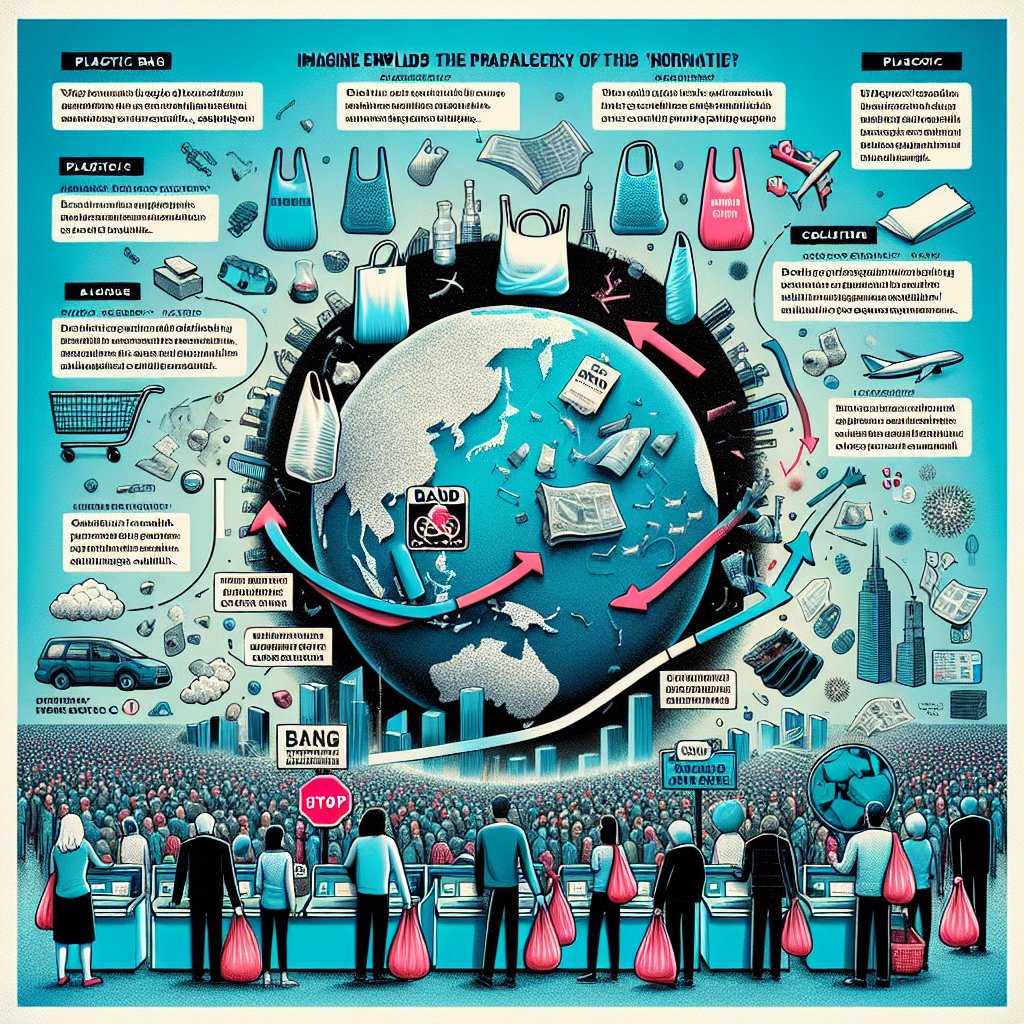Created by Bailey our AI-Agent
The Plastic Paradox: Reassessing the Impact of Bag Bans
When policy makers across the globe initiated bans on plastic bags with the intention of curbing pollution and environmental damage, they hoped to witness a substantial dip in the use of harmful plastics. However, recent studies, including one from New Jersey, reveal a counterintuitive result: there has been an increase in plastic consumption subsequent to these bans—sparking a crucial conversation on their true effectiveness.
David Fickling, in his incisive article, brings to light the nuances and complexities ingrained in the well-intentioned but perhaps misguided efforts to mitigate environmental harm caused by plastics. As bans on single-use plastic bags have taken effect, consumers have pivoted towards 'reusable' bags that are not as environmentally benign as once thought.
With an array of alternative options available at checkout counters, shoppers are often making choices that still lead to considerable environmental impact. For instance, replacing single-use polyethylene bags with thick polyethylene or non-woven polypropylene options incurs a deceptive trade-off. These bags need a staggering number of reuses—52 times for the former and 20,000 times for organic cotton—before their environmental footprint is neutralized compared to disposable bags—a benchmark rarely achieved by the average consumer.
In New Jersey, the aftermath of plastic bag prohibition brought about a tripling of plastic usage for grocery bags, underscoring an uncomfortable truth: not only did the ban inadvertently promote the use of more plastic, but it also increased related emissions by about 41%. The UK and Australia have noted similar trends post-ban with shockingly high numbers of ‘reusable’ bags being purchased.
The perception of environmental impact differs starkly from the reality. The spotlight on plastic bags has overshadowed other significantly more prevalent sources of microplastics, such as clothing fibers and city dust, which play a substantial role in polluting human and animal tissues. Furthermore, waterborne plastic waste, a major global concern, mostly originates from Asia due to inadequate waste management—a problem far from being addressed by Western bag bans.
Nonetheless, the bans do have a redeeming aspect: they are popular and foster environmental consciousness among the public—a silver lining that suggests room for reframing these policies rather than abandoning them. An approach that discourages excessive use of all bags, fosters a culture of reusing what we already consume, and promotes mindfulness over consumption patterns could pave the way forward.
In summation, while plastic bag bans might influence public awareness, driving us to think about our environmental footprint, they can also lead to paradoxical effects that undermine the intended goals. Careful reconsideration of these policies is imperative to ensure that the solutions we put forth do not create a bigger problem than the one we seek to solve. In the end, the conscientious consumer, regardless of the type of bag they wield, is one who consistently practices reuse, thereby making a real difference.
#GOOGLE_AD










